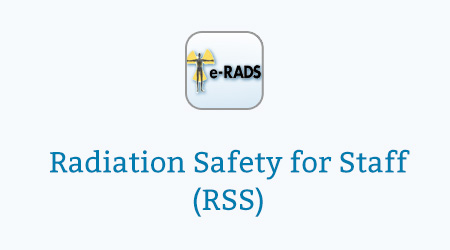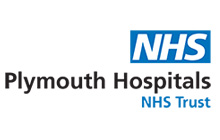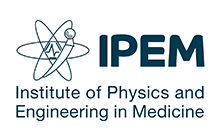About the Radiation Safety for Staff programme
e-RADS supports the information, instruction and training required under Regulation 15(1) of the Ionising Radiations Regulations 2017 (IRR2017), which requires that employees working with ionising radiations are to be provided with suitable information to avoid being unnecessarily exposed. The programme is suitable for non-specialist staff who do not normally work with ionising radiations. It may also provide a useful introductory/refresher resource for trainees and colleagues working in departments using ionising radiations.
e-RADS was originally developed for national use, with the support of expert authors within the NHS. In 2020, the programme was revised and updated in partnership with the Institute of Physics and Engineering in Medicine (IPEM) to reflect the requirements of IRR2017 and new technologies and techniques involving the use of ionising radiations in healthcare.
e-RADS covers basic radiation safety for staff who come into contact with patients undergoing medical exposure to ionising radiations. It uses an interactive elearning approach to improve the safety of staff by providing them with the information, knowledge and understanding of the different types of radiation sources that can be used within the hospital environment. It identifies the importance of following the safety precautions that are in place to reduce the risks associated with ionising radiations and the basic principles associated with keeping their own exposure As Low As Reasonably Practicable (ALARP).
More information
Topics covered in e-RADS include:
- radiotherapy, including external beam, brachytherapy and unsealed source therapy
- diagnostic imaging using X-rays, including planar imaging and fluoroscopy
- diagnostic and therapeutic nuclear medicine
- interventional radiology and cardiology
The sessions would benefit ward and theatre staff, porters, cleaners and mortuary staff. They may also be of value to trainees and staff working in departments using ionising radiations, managers and patient representatives.
e-RADS provides staff with an understanding of the types of controls in place to warn of the radiation hazards, the monitoring available for some staff and the protective devices or methods used to keep doses ALARP. The differences between the risks associated with high dose therapies and lower dose diagnostic uses of radiation and the difference between radioactive substances and X-rays are all considered.
Staff are able to gain a better perspective on the magnitude of the radiation risks involved, which are often low when diagnosis and therapy involving ionising radiations is undertaken in a well-controlled manner.
Related programmes
-
e-IRMER (Ionising Radiation (Medical Exposure) Regulations)
e-IRMER (Ionising Radiation (Medical Exposure) Regulations) is an interactive online training resource supporting the training of NHS and other healthcare professionals who work with patients undergoing ionising radiation medical exposures.
-
eProton
eProton offers useful background and general awareness of proton beam therapy (PBT) for all staff groups working in NHS radiotherapy and related services, especially for those in referral or support centres. The programme covers radiation protection for proton beams.
-
Radiotherap-e
Radiotherap-e offers multi-professional learning resources for the trained workforce involved in the delivery of radiotherapy, including clinical oncologists, physicists, radiographers and dosimetrists.
-
Radiation Protection for Cardiology
The Radiation Protection for Cardiology programme addresses the requirements of the Training Curriculum in Cardiology, in particular the need for trainee cardiologists to have completed a course on the Ionising Radiation (Medical Exposure) Regulations.
-
Radiation Protection for Vascular Surgeons
The Radiation Protection for Vascular Surgeons programme is designed to deliver the theoretical knowledge required by the Ionising Radiation (Medical Exposure) Regulations 2017 within the UK, tailored towards the radiation safety of staff, patients and the public from the use of radiation within vascular surgery.
-
Radioiodine for Endocrinologists
The Radioiodine for Endocrinologists programme contains physics modules for the National Training Scheme for the use of I-131 in Benign Thyroid Disease. Areas studied include radiation physics, biological effects of radiation and basic radiation protection.
Meet the team

Mark Knight
Clinical Lead and Lead Editor, IPEM
Kathryn Surtees
Project Champion, IPEM
Jon Guy
Programme Manager, HEE elearning for healthcare
Dave Beardmore
Project Manager for elearning for healthcare
Claire Beattie
Learning Designer, HEE elearning for healthcare
Acknowledgements to the following authors and reviewers
Health Education England acknowledges the following individuals for their substantial contribution to the HEE elearning for healthcare e-RADS programme:
- Melanie Cunningham
- Susan Doshi
- Claire Hooker
- Ivor Jones
- Mark Knight
- Eugenia Kulama
- Rob Loader
- Mark Long
- Peter O’Sullivan
- Nick Rowles
- Christie Theodorakou
How to access
In order to access the e-RADS – Radiation Safety for Staff programme, you will need an elfh account. If you do not have one, then you can register by selecting the Register button below.
To view the e-RADS – Radiation Safety for Staff programme, select the View button below. If you already have an account with elfh, you will also be able to login and enrol on the programme from the View button.
NHS healthcare staff in England
The e-RADS – Radiation Safety for Staff programme is also available to NHS healthcare staff via the Electronic Staff Record (ESR). Accessing this elearning via ESR means that your completions will transfer with you throughout your NHS career.
Further details are available here.
Not an NHS organisation?
If you are not an NHS health or care organisation and therefore do not qualify for free access elfh Hub, you may be able to access the service by creating an OpenAthens account.
To check whether or not you qualify for free access via OpenAthens, you can view the eligibility criteria and register on the ‘OpenAthens’ portal.
Registering large numbers of users
If you are a HR, IT or Practice Manager and would like to register and enrol large numbers of staff within your organisation for access onto the e-RADS – Radiation Safety for Staff programme, please contact elfh directly.
Organisations wishing to use their own LMS
For HR departments wanting to know more about gaining access to courses using an existing Learning Management System please contact elfh directly to express interest.
More information
Please select the following link for more information on how to use the elfh Hub.





